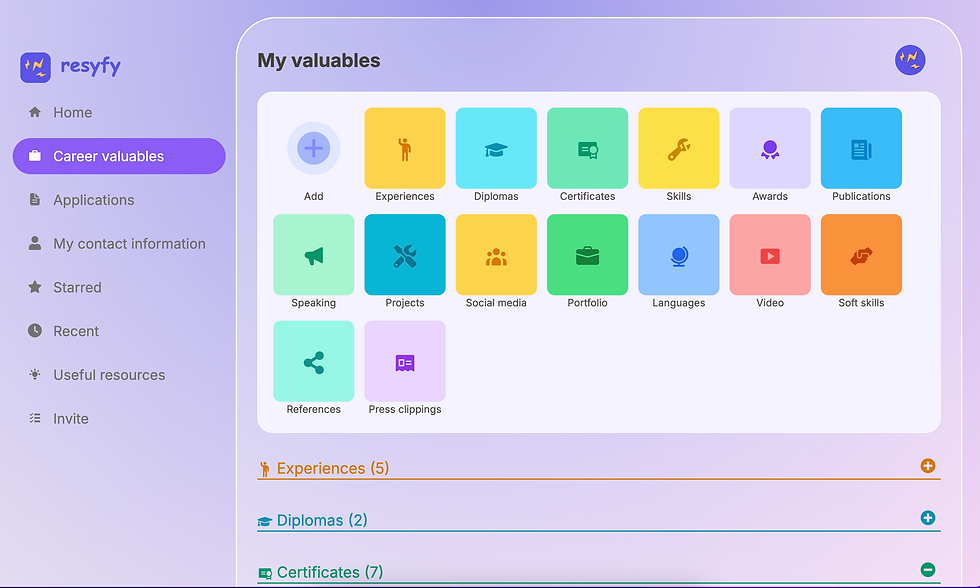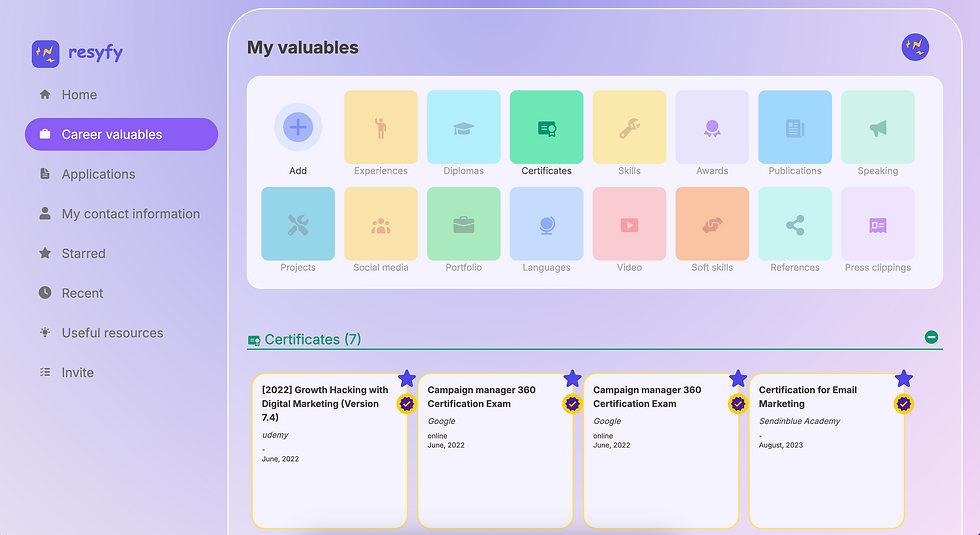Mastering Career Management for Professional Growth
- Vanessa Ray

- Mar 18, 2024
- 4 min read
In today's fast-paced world, mastering career management is essential for achieving professional growth. As we navigate our careers, developing effective strategies that align with our goals is paramount. This blog post will delve into critical career development strategies, offer actionable recommendations, and explore how you can proactively manage your career trajectory.
Career Development Strategies
The first step in effective career management is to understand the significance of having a clear direction. It is crucial to know where you want to go and how to get there. Setting specific career goals can help you focus your energy and resources efficiently. For example, if you aim to become a manager in your field, identify the skills and qualifications needed for that position.
Research from the Bureau of Labor Statistics indicates that employees who engage in ongoing career development earn higher salaries than those who do not. On average, professionals who continually advance their skills can earn up to 26% more over their lifetime. This statistic underscores the importance of investing time in your career development.
Consider creating a personal career development plan. This plan should detail your short-term and long-term goals, the skills you need to acquire, and the steps to achieve these goals. Regularly revisiting and updating your plan can ensure you stay on track and make necessary adjustments.

Embracing Lifelong Learning
One of the most effective career development strategies is embracing lifelong learning. The modern workforce is continually evolving, with new technologies and methodologies emerging regularly. By committing to ongoing education, you can stay relevant and adaptable in your industry.
Consider enrolling in workshops, online courses, or certification programs related to your field. For instance, platforms like Coursera and LinkedIn Learning offer numerous resources that can enhance your skills. Additionally, attending industry conferences can provide valuable insights into emerging trends and networking opportunities.
Statistics show that professionals who engage in continuous learning are 57% more likely to be promoted. This is a testament to the value of investing in your knowledge and expertise.
What are the 5 P's of Career Management?
To effectively manage your career, consider the 5 P's of career management: Purpose, Plan, Pursue, Perform, and Progress. Each element serves as a pillar to support your professional journey.
Purpose: Understand your career purpose. What motivates you? Identifying your passion and core values will guide your decisions and actions.
Plan: Establish a detailed career plan. What position do you want to reach, and what skills are necessary? Analyze your current situation and create a roadmap to your goals.
Pursue: Actively pursue networking opportunities. Attend events and connect with individuals in your industry who can support your growth.
Perform: Always aim for excellence in your work. Deliver quality results to build a strong reputation in your field.
Progress: Regularly evaluate your progress and make adjustments as necessary. Reflect on your achievements and setbacks to stay aligned with your goals.

The Role of Networking
Networking is a crucial component of career management that often gets overlooked. Building relationships with people in your industry can open doors and create new opportunities for professional growth. Aim to network both online and offline.
Online Networking: Utilize platforms like LinkedIn to connect with peers, mentors, and industry leaders. Participate in discussions, share insights, and showcase your expertise through content creation.
Offline Networking: Attend events, seminars, and industry conferences where you can meet people in person. Building genuine relationships can lead to job referrals and mentorship opportunities.
Research indicates that 70% of job openings are not publicly advertised and are filled through networking. By prioritizing relationship-building, you can significantly improve your chances of finding new opportunities.

Taking Initiative in Your Career
Proactively managing your career means taking initiative. Don't wait for opportunities to come to you; create them. Here are a few steps you can take to foster a proactive career mindset:
Seek Feedback: Regularly ask for feedback from supervisors and peers. Constructive criticism can guide your development and highlight areas for improvement.
Volunteer for Projects: Step outside your comfort zone by volunteering for challenging assignments. This not only enhances your skills but also demonstrates your willingness to take on new responsibilities.
Find a Mentor: Find someone in your field who can provide guidance and support. A mentor can offer invaluable insights, open doors, and help you navigate your career path.
Stay Informed: Keep up with industry trends and news. Subscribing to relevant publications and following thought leaders on social media can empower you to make informed career decisions.
By taking initiative, you put yourself in control of your career trajectory and enhance your chances of success.
Embracing Change and Adaptability
In the dynamic world of work, change is inevitable. Being open to change and adaptable in your approach is crucial for long-term career success. Here are some practical tips for embracing change:
Cultivate a Growth Mindset: Understand that challenges are opportunities for growth. Adopt a mindset that welcomes learning and innovation.
Stay Agile: Be willing to pivot when necessary. If your goals or interests change, adjust your career plan accordingly.
Leverage Technology: Embrace technology and learn new tools that can enhance your productivity and efficiency. Familiarity with emerging technologies gives you a competitive edge.
Network Across Industries: Expanding your horizons by connecting with professionals from different industries can provide fresh perspectives that may benefit your career.
Embracing change is a vital skill that can open up new avenues for professional growth.
Final Thoughts on Career Growth
Mastering career management and implementing effective strategies for professional growth require consistent effort and a proactive mindset. By setting clear goals, engaging in lifelong learning, networking, taking the initiative, and embracing change, you can create a fulfilling career path.
Remember, you control your professional destiny. Take the time to evaluate your career, make informed choices, and stay committed to your development. For more insights on effective career strategies, visit career management.
As you navigate your career, keep these strategies in mind, and watch as you progress towards your professional goals. Your future is in your hands, so take charge and succeed.



